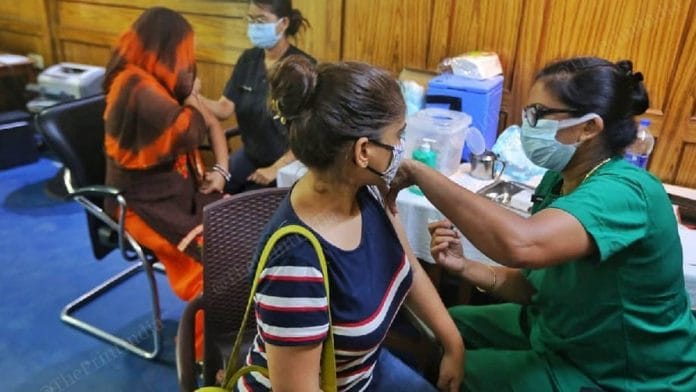New Delhi: Adults who have recovered from Covid-19 could develop multisystem inflammatory syndrome, but the occurrence is rare, a new study has revealed. This condition has, so far, been detected only in children.
In a case study, published in CMAJ (Canadian Medical Association Journal) Monday, scientists studied a 60-year-old man, who had tested positive for SARS-CoV-2 and visited the hospital four weeks later with a range of symptoms, including prolonged shortness of breath, high fever, swelling and severe fatigue.
The patient, who had no comorbidities and had not been vaccinated, had developed an enlarged heart and lung swelling as well as other issues.
A team from the University of Calgary in Canada suspected post-Covid inflammatory syndrome after he developed conjunctivitis along with symptoms of inflammation in the throat and mouth.
The patient presented a five-day history of mild shortness of breath, fatigue, abnormally low body weight and fever of up to 40 degrees Celsius.
He also reported a lymph node enlargement on the left side of his neck, which had resolved itself two days before presentation.
“The presentation was similar to reported cases of an uncommon but severe complication in children and adolescents infected with SARS-CoV-2, called multisystem inflammatory syndrome in children (MIS-C), as well as to Kawasaki-like illness,” the researchers said in the study.
Based on the findings, the researchers suggest that age should not limit the potential diagnosis of the condition. However, much is unknown about multisystem inflammatory syndrome in adults (MIS-A).
Also read: Too early to tell if Covid booster shot is required, WHO’s chief scientist Swaminathan says
Multisystem inflammation in children
Multisystem inflammatory syndrome in children (MIS-C), meanwhile, is a rare condition associated with SARS-CoV-2 infection in children and was first defined in April last year.
More than 250 cases of MIS-C were identified in the UK and Ireland from March to June 2020.
While it is still not known what triggers the condition, it is thought to be a rare immune overreaction that occurs four to six weeks after a mild or asymptomatic SARS-CoV-2 infection.
The symptoms include fever, rash, eye infection, diarrhoea, stomach-ache and nausea. In some rare cases, the condition may lead to multiple organ failure.
Also read: Covid can cause loss of brain grey matter in recovered patients, Oxford researchers find






